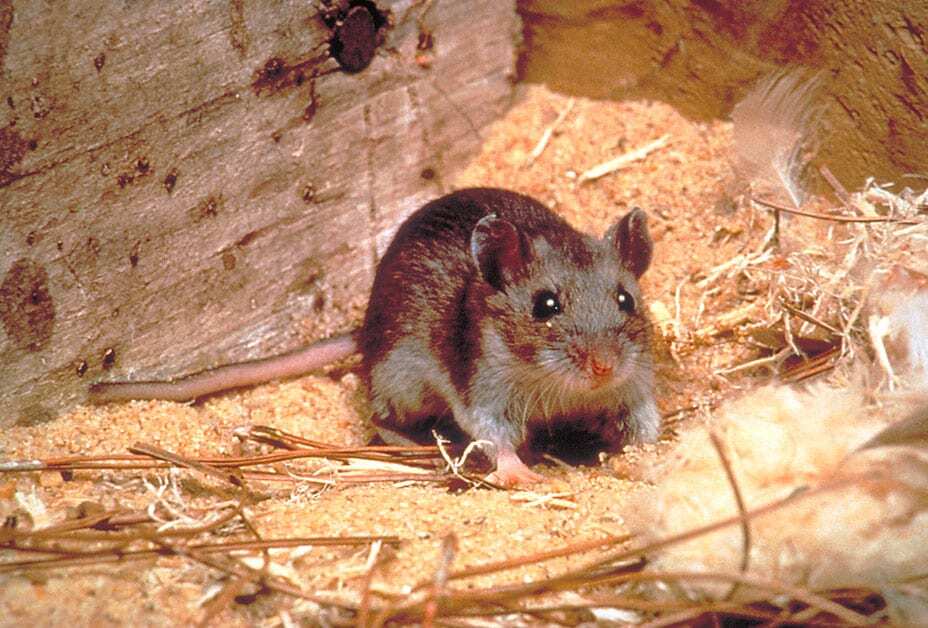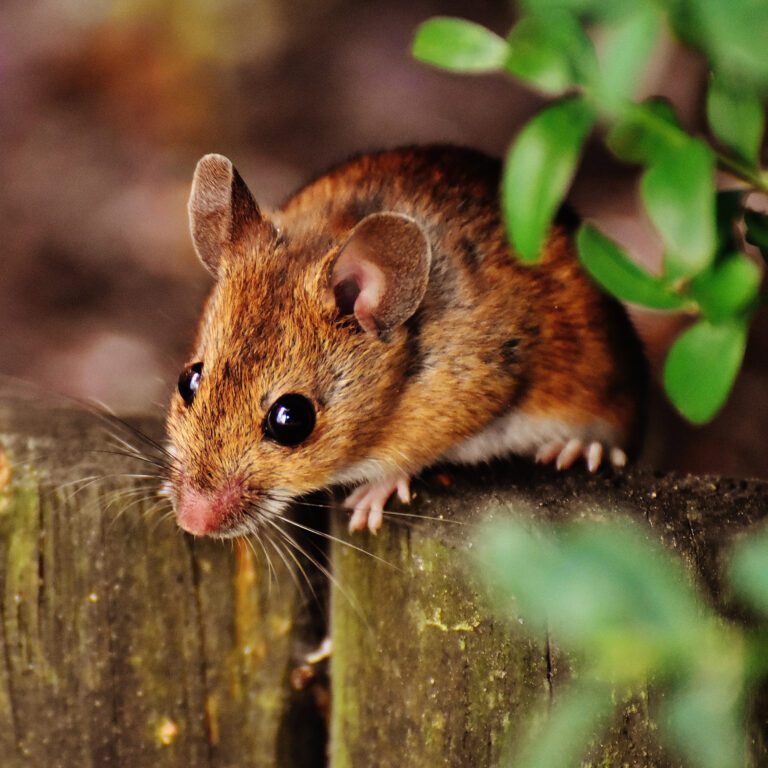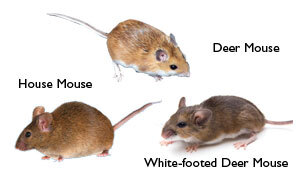Field Mice and Diseases: Health Risks for Humans and Pets
Introduction
Overview of field mice
Field mice, also known as meadow voles, are small rodents that are commonly found in grassy fields, meadows, and forests. They have a brown or grayish-brown fur and a short tail. Field mice are herbivores and feed on a variety of plants, including grasses, seeds, and roots. They are active year-round and can reproduce quickly, with females giving birth to several litters each year. While field mice are generally harmless to humans, they can carry diseases that can be transmitted to humans and pets. It is important to take precautions to prevent contact with field mice and to seek medical attention if you suspect you have been exposed to a disease carried by these rodents.
Importance of discussing health risks
It is crucial to discuss the health risks associated with field mice and diseases, as many people are unaware of the potential dangers. By understanding the risks, individuals can take necessary precautions to protect themselves and their pets. Additionally, discussing these risks can help to raise awareness and prevent the spread of diseases. It is important to note that while field mice may seem harmless, they can carry a variety of diseases that can have serious consequences for both humans and animals. Therefore, it is essential to have an open dialogue about the potential health risks and take appropriate measures to minimize exposure.
Diseases transmitted by field mice
Hantavirus
Hantavirus is a serious disease that can be transmitted to humans through contact with infected rodents, including field mice. The virus is typically spread through the inhalation of dust particles contaminated with rodent urine, droppings, or saliva. Symptoms of hantavirus infection can include fever, muscle aches, and respiratory distress, and the disease can be fatal in some cases. To reduce the risk of hantavirus infection, it is important to take steps to control rodent populations in and around your home, such as sealing up entry points and removing potential food sources. If you suspect that you or a family member may have been exposed to hantavirus, seek medical attention immediately.
Lyme disease
Lyme disease is a bacterial infection that is transmitted to humans through the bite of infected black-legged ticks. Field mice are one of the primary hosts for these ticks, which can then spread the disease to humans and pets. Symptoms of Lyme disease include fever, headache, fatigue, and a characteristic skin rash. If left untreated, the infection can spread to the joints, heart, and nervous system, causing more serious health problems. It is important to take precautions when spending time in areas where ticks are common, such as wooded or grassy areas, and to check for ticks on yourself and your pets after spending time outdoors. If you suspect you may have been bitten by an infected tick, seek medical attention promptly.
Salmonella
Salmonella is a type of bacteria that can be found in the feces of infected animals, including field mice. Humans and pets can become infected with Salmonella by coming into contact with contaminated surfaces or consuming contaminated food or water. Symptoms of Salmonella infection include diarrhea, fever, and abdominal cramps. In severe cases, the infection can lead to hospitalization or even death. It is important to take precautions to prevent Salmonella infection, such as washing hands thoroughly after handling animals or their feces, cooking food thoroughly, and avoiding cross-contamination of food.
Leptospirosis
Leptospirosis is a bacterial infection that can be transmitted to humans and pets through contact with contaminated water or soil. Field mice are carriers of the bacteria and can spread it through their urine. Symptoms of leptospirosis in humans include fever, headache, muscle aches, and vomiting. In severe cases, it can lead to liver and kidney failure. Pets can also contract leptospirosis and may show symptoms such as fever, vomiting, and lethargy. It is important to take precautions when handling or disposing of dead mice and to keep pets away from areas where mice may be present to prevent the spread of leptospirosis.
Plague
Plague is a serious bacterial infection that can be transmitted to humans through the bites of infected fleas that have been feeding on infected rodents, including field mice. Symptoms of plague include fever, chills, weakness, and swollen lymph nodes. If left untreated, plague can lead to serious complications and even death. While cases of plague in humans are rare, it is important to take precautions to avoid contact with infected rodents and their fleas. Pet owners should also be aware of the risks and take steps to protect their pets from exposure to infected rodents.
Health risks for humans
Symptoms of diseases transmitted by field mice
Symptoms of diseases transmitted by field mice can vary depending on the specific illness. Hantavirus, for example, can cause flu-like symptoms such as fever, muscle aches, and fatigue, which can progress to more severe respiratory distress and even death. Lyme disease, which is transmitted by ticks that often feed on field mice, can cause a rash, fever, and joint pain. Other diseases that can be transmitted by field mice include tularemia, salmonellosis, and leptospirosis, each with their own set of symptoms. It is important to seek medical attention if you suspect you or your pet may have been exposed to a disease transmitted by field mice.
Prevention measures
Prevention measures are crucial to avoid the health risks associated with field mice and their diseases. One of the most effective ways to prevent field mice infestations is to keep your home and surroundings clean and tidy. This includes regularly cleaning up food crumbs and spills, storing food in airtight containers, and sealing any cracks or holes in your home’s exterior. Additionally, it’s important to keep your pets’ food and water bowls clean and to dispose of any uneaten food promptly. If you suspect a field mice infestation, it’s best to contact a pest control professional to safely and effectively remove the rodents from your home. By taking these prevention measures, you can help protect yourself, your family, and your pets from the health risks associated with field mice and their diseases.
Importance of seeking medical attention
It is crucial to seek medical attention if you suspect that you or your pet has been exposed to field mice or their droppings. Some of the diseases that can be transmitted by field mice, such as hantavirus and leptospirosis, can be life-threatening if left untreated. Symptoms of these diseases can range from mild to severe and may include fever, muscle aches, and respiratory problems. If you or your pet experience any of these symptoms after being in contact with field mice, it is important to seek medical attention immediately. Early diagnosis and treatment can greatly increase the chances of a full recovery.
Health risks for pets
Symptoms of diseases transmitted by field mice in pets
Pets can contract a variety of diseases from field mice, including hantavirus, salmonellosis, and leptospirosis. Symptoms of these diseases can vary depending on the specific illness, but common signs include fever, lethargy, loss of appetite, vomiting, and diarrhea. In severe cases, pets may experience respiratory distress, kidney failure, or even death. It is important to seek veterinary care immediately if you suspect your pet has been exposed to field mice or is exhibiting any of these symptoms. Additionally, taking preventative measures such as keeping your pet’s food and water dishes clean and storing pet food in airtight containers can help reduce the risk of disease transmission.
Prevention measures
Prevention measures are crucial to avoid the health risks associated with field mice and the diseases they carry. One of the most effective ways to prevent mice infestations is to keep your home and surroundings clean and tidy. This includes regularly cleaning up food spills, storing food in airtight containers, and disposing of garbage properly. Sealing any cracks or holes in walls, floors, and doors can also prevent mice from entering your home. Additionally, it is important to keep your pets’ food and water bowls clean and to store their food in sealed containers. Regularly inspecting your home for signs of mice and promptly addressing any infestations can also help prevent the spread of diseases. By taking these prevention measures, you can protect yourself, your family, and your pets from the health risks associated with field mice.
Importance of seeking veterinary attention
It is crucial to seek veterinary attention if you suspect that your pet has come into contact with field mice or their droppings. Some of the diseases transmitted by field mice can be fatal to pets if left untreated. Additionally, some of these diseases can be transmitted from pets to humans, making it essential to ensure that your pet receives prompt medical attention. Your veterinarian can perform tests to determine if your pet has been infected and provide appropriate treatment to prevent the spread of the disease. Remember, prevention is always better than cure, so take steps to keep your pets away from areas where field mice are likely to be present.
Conclusion
Summary of health risks
In summary, field mice can pose significant health risks to both humans and pets. They are known carriers of various diseases, including hantavirus, Lyme disease, and salmonella. These diseases can be transmitted through direct contact with the mice, their droppings, or urine. In addition, field mice can attract other pests such as fleas and ticks, which can also carry diseases. It is important to take preventative measures such as sealing up entry points and keeping food sources inaccessible to minimize the risk of exposure to these health hazards. If you suspect a field mouse infestation in your home or property, it is recommended to seek professional pest control services.
Importance of taking preventive measures
It is crucial to take preventive measures against field mice and the diseases they carry. This includes keeping your home and surrounding areas clean and free of clutter, sealing any cracks or holes in your home’s foundation or walls, and storing food in airtight containers. Additionally, it is important to keep your pets’ food and water dishes clean and to dispose of any pet waste promptly. Taking these steps can help reduce the risk of exposure to diseases carried by field mice and protect the health of both humans and pets.






